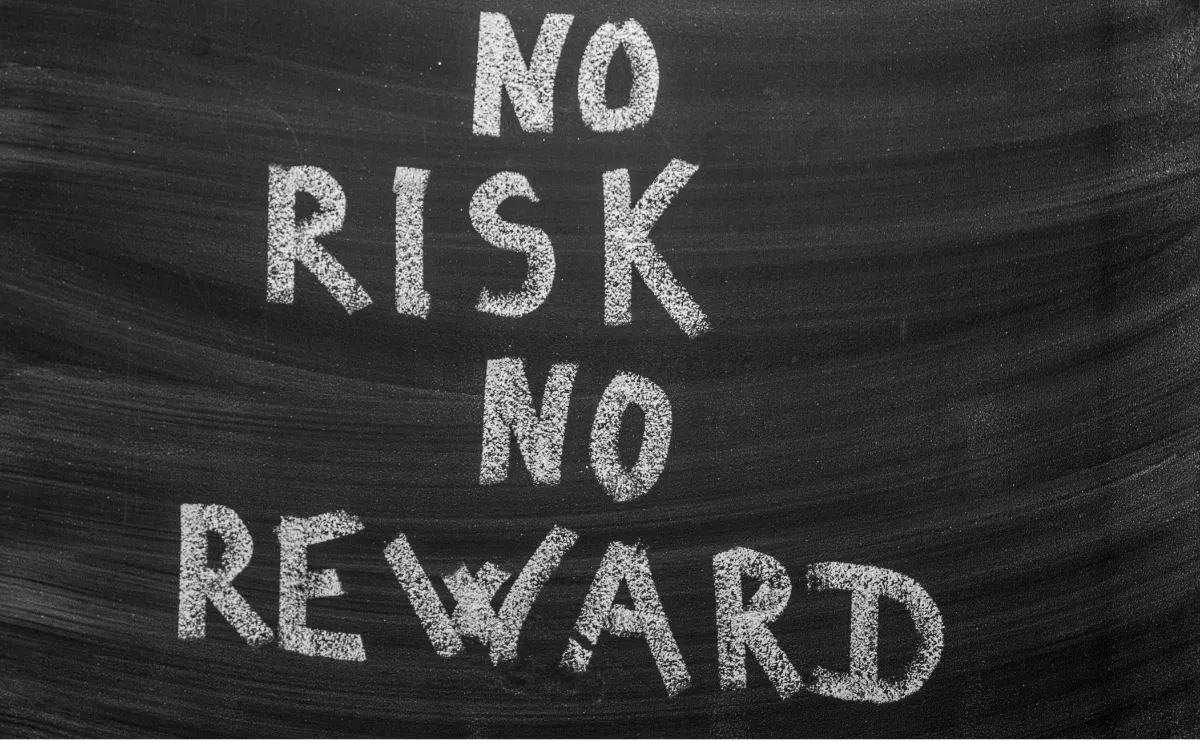Entrepreneurship Ain't for the Faint at Heart!

(Excerpt from my book "Her Hustle is Holy: The Ultimate Urban Guide to Starting a Business ... God's Way!"
You’ve heard it before. GO BIG OR GO HOME. NO RISK, NO REWARD. PUT UP OR SHUT UP. DO OR DIE. FISH OR CUT BAIT. SINK OR SWIM. YOU GET BACK WHAT YOU PUT IN. Looking back, that’s the approach I took with starting my talent agency when I decided to quit my 9 to 5 -- Go Big or Go Home! Even the Bible says YOU REAP WHAT YOU SOW, although somehow we’ve managed to give this a negative connotation meaning if you reap bad, bad comes back on you, but doesn’t the same apply if you reap good? I believe so! To think it only negatively is characteristic of human nature.
When I launched my talent agency, the risk of failure was first and foremost on my mind. While I had some exposure to the business through my son, I had no experience with running a business, let alone a model and talent agency. I even had the nerve to quit a well-paying job with a major utility company in our city that provided great benefits and room for growth. Accounting jobs come a dime a dozen; there would always be employment opportunities. Starting a business was indeed an emotional and financial risk. Yet, I was all in.

Entrepreneurship ain’t for the faint at heart, and no discussion on starting a business is complete without exploring the risks of entrepreneurship. With most things in life we undertake, there are risks, and starting a business is no different. There are also different levels of risks. Because of my educational background and professional experience, starting a model and talent agency was way riskier than starting a tax and accounting firm. I chose to go with my passion, the model and talent agency. [More on passion in a later chapter].
Risk in its simplistic form means, “the potential for harm or loss.” In the case of starting a business, the risk is anything that threatens your company’s ability to meet its financial goals which can potentially lead to failure and closure of the business. It’s important to note that taking risks does not mean doing anything unbiblical, foolish, or outside of the will of God. Instead, it means taking calculated risks by carefully estimating the probable outcome or desired results of your decisions.
RISKS OF ENTREPRENEURSHIP
It’s easy to see the upside of any venture, but the truth is, starting a business involves risks and it is important to evaluate those risks before launching. Even Jesus, in Luke 14:25-33, emphasizes the importance of counting the cost before building.
A great starting point is determining how much risk you can handle, in other words, your risk tolerance. Your risk tolerance is the level of risk you are willing to take, for any opportunity, with the hope and expectation of huge rewards. In this case, your hope is one or more of the rewards of entrepreneurship previously discussed in Chapter 7.
Your risk tolerance measures your temperament and capacity to accept and manage risks associated with starting and operating a business. This drives your long-term and day-to-day decisions. The three levels of risk tolerance are aggressive, moderate, and conservative. Like with rewards, risk tolerance is unique to each individual, and is primarily measured by time, finances, age, resources, and comfort. In other words, how much time you have, how much money you have, your financial goals, how old you are, access to resources, and your overall comfort level, all play a factor in determining how much risk you’re willing to take. Ultimately, it’s about how well you can stomach the outcome when things don’t go as planned.
Simplistically, if you’re aggressive it means you are willing to expose more of your resources (time or money, for example) to potentially achieve greater results. If you’re moderate it means you are less willing, and if you are conservative it means, “playa, playa, I ain’t feelin’ it!”
Your risk tolerance can also change as internal and external factors change around you. It is important to be well-prepared and adaptable to pivot, counter risks, or capitalize on unanticipated market opportunities. In starting a business, you must do everything possible to mitigate the risks, maximize the rewards, and ensure that the rewards outweigh the risks.
There are several risks to starting a business, the primary risks being - financial risks, economic risks, technological risks, competitive risks, and personal risks.
FINANCIAL RISKS are those factors that can potentially impact your cash flow, profitability, and solvency, that is your overall ability to stay afloat. Managing this risk starts with finding a successful product or service that meets a need in the marketplace and effectively marketing its value. That is, finding a product or service that customers are willing to pay for and convincing consumers that your product or service will meet their needs or solve their problem.
ECONOMIC RISKS refers to the changes in market conditions that can lead to a sudden and unexpected loss in revenue. This includes external factors such as inflation and recession, policy changes, fluctuations in interest rates and foreign exchange rates, and employment levels. Depending on where your business operates geographically, these factors may be experienced at the local, regional, national, or even international level. Economic risks also include internal factors such as financial mismanagement and poor investment decisions.
TECHNOLOGICAL RISKS are the potential technology failures that can negatively impact and cause disruptions to your business operations. This includes exposure of your information systems to data loss or significant downtime due to cyberattacks, software failures, outdated or slow systems, or power outages. Much of your business reputation and your business transactions are heavily influenced by your effective use of technology. As such, consumers expect businesses to keep up with technology that provides a safe and secure user-friendly experience. Technology is rapidly evolving and staying up to date is vital; however, purchasing new technology or dealing with downtime can be quite costly to your bottom line.
COMPETITIVE RISKS is the potential loss of customers due to competition and directly impacts how much of the market you control. Competition is healthy and should be expected as it correlates to the demand for your product. No competition could mean that there is no market.
But let’s talk about PERSONAL RISKS, which are rarely talked about as it relates to entrepreneurship. This includes your mental, physical, emotional, financial, and spiritual health, all of which are at risk in starting a business. Personal risks involves your willlingness to leave your comfort zone. It’s important to give careful consideration to the personal risks because as CEO of your life and business, your personal health is vital to the overall success of your business. #NoYOUNoBusiness. I’ll remind you again, entrepreneurship ain’t for the faint at heart! Let's talk about the top personal risk factors for starting a business and what you can do about it.
To read more about the top personal risk factors and how to mitigate them, click here to purchase your copy of my book "Her Hustle is Holy: The Ultimate Urban Guide to Starting a Business ... God's Way!"

